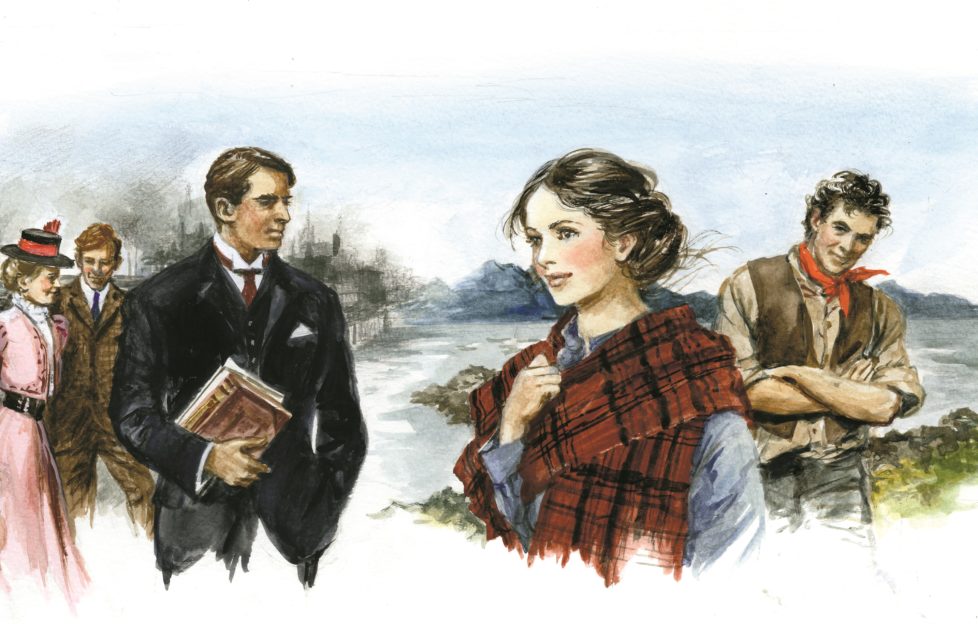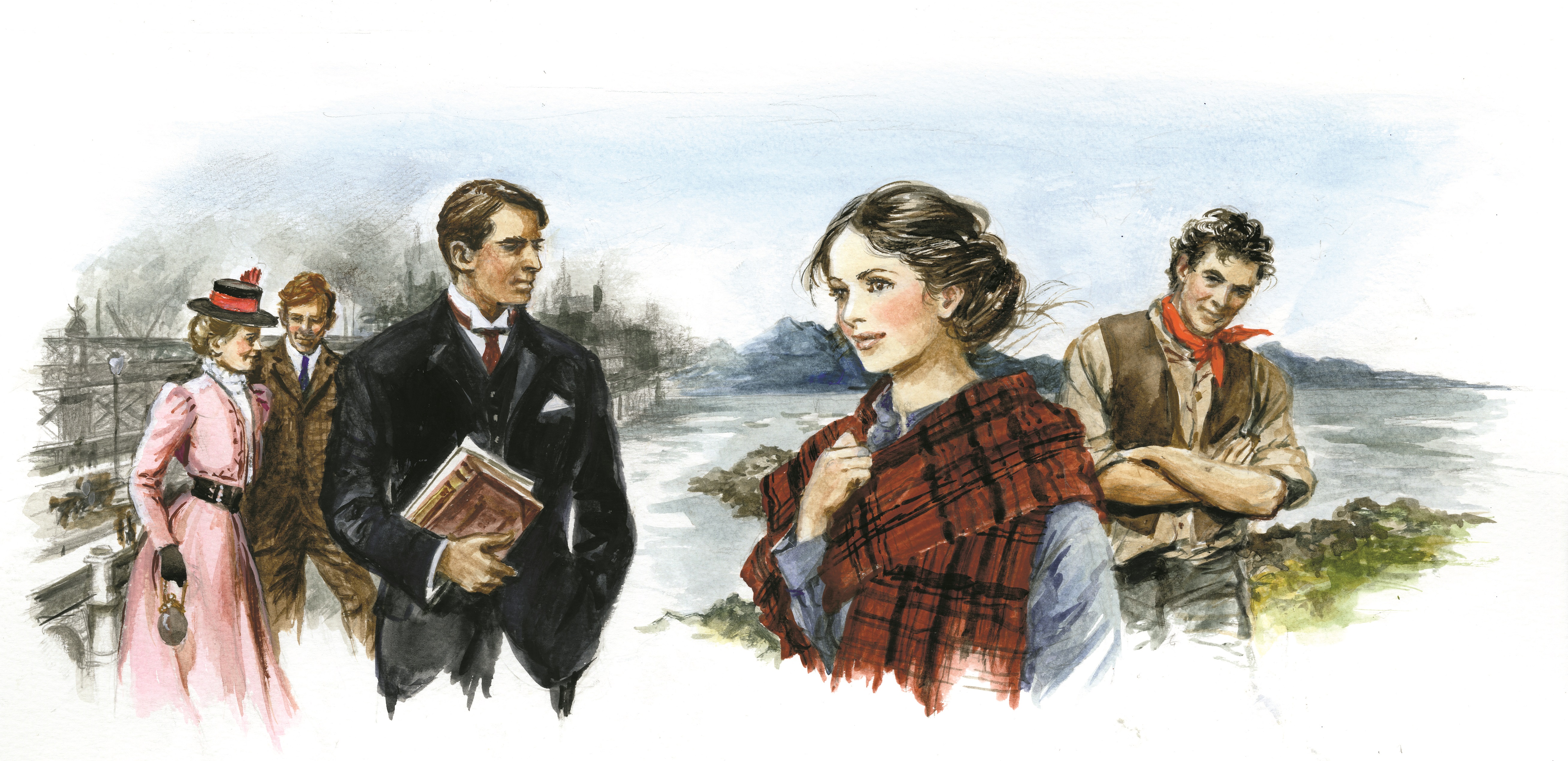Far From The Island – 31

Far From The Island
« Previous Post- 28. Far From The Island – 28
- 29. Far From The Island – 29
- 30. Far From The Island – 30
- 31. Far From The Island – 31
- 32. Far From The Island – 32
- 33. Far From The Island – 33
- 34. Far From The Island – 34
July 1900
The village men of Heronsay stood in sullen silence as Fraser McGowan began to load his family’s meagre possessions on to the cart which would transport them to the harbour, then on to the boat which would ferry them away from Heronsay to a new life on the mainland. Mary McGowan and her four bairns had already left. At the doorway of the cottage, Factor Finlay Morrison stood guard, his eyes flickering nervously from the villagers to the family he was evicting for being unable to pay their rent.
Euan watched with the other men, his throat tight with emotion. All his attempts to gain access to the laird had failed. Every attempt to talk sense into Morrison had fallen on deaf ears. Morrison had gone full steam ahead with fencing in the land, taking away the common grazing, doubling and tripling the rents of those crofts which happened to be located on land the laird had other plans for.
Euan no longer lacked support for his initiative of tearing down the fencing, but he lacked the will to continue it. The laird employed men from the mainland, men with no ties to the island, to stand guard. Ruthless men they were, who would not hesitate to use the firearms they were given. When Alexander McGowan, Fraser’s brother, narrowly missed being shot in the leg, Euan tried to call a halt to their protests. But Fraser, behind with his rent, fearful for his family’s future, seeking revenge for his brother’s near miss, had sealed his own fate when he was caught breaking into the laird’s boat house, intent on damaging the laird’s fancy yacht.
“It’s not right!”
“We’ll stand for no more!”
“You’ll live to regret this day, Morrison.”
The atmosphere changed, like the crackle in the air before a storm, from resentment to anger. Alarmed, Euan tried to inject some calm.
“There is no point in causing more trouble,” he said to the men. “It will only inflame the situation.”
“We have to show him we mean business, Euan. You are the one who has been telling us so from the start.”
The speaker was one of Euan’s neighbours, an old man of nearly sixty.
“Not like this, though,” Euan said to him desperately.
His restraining arm was shaken off.
“Ever since yon Morrison arrived on Heronsay, you’ve been warning us, and you were right. The time for action is now.”
“Violence is not the answer,” Euan said, trying to keep the panic from his voice.
“What else can we do? Have your own efforts to discuss the situation come to anything?”
“No, but we can try again.”
“Ach, what is the point, Euan? The time for talk is past. Don’t try to stop us, for we’ve decided.”
“Decided?” With a sinking feeling in the pit of his stomach, Euan realised they had indeed decided, and excluded him from the process, too, knowing he would object. “Andrew, I beg of you, don’t –”
But once again, his restraining hand was shaken off and he was pushed to one side. Horrified, he saw that the village men were now squaring themselves for a fight, some of them drawing stout sticks as cudgels. As the villagers made to advance towards the cottage, Euan saw that Factor Morrison had anticipated the attack. Or more likely had been informed. The factor’s hand slipped into his coat pocket and withdrew a whistle. The piercing sound brought reinforcements, along with the laird himself, resplendent on a chestnut thoroughbred horse. He had a child on the saddle with him, too. What kind of man would bring a child to witness such a scene?





